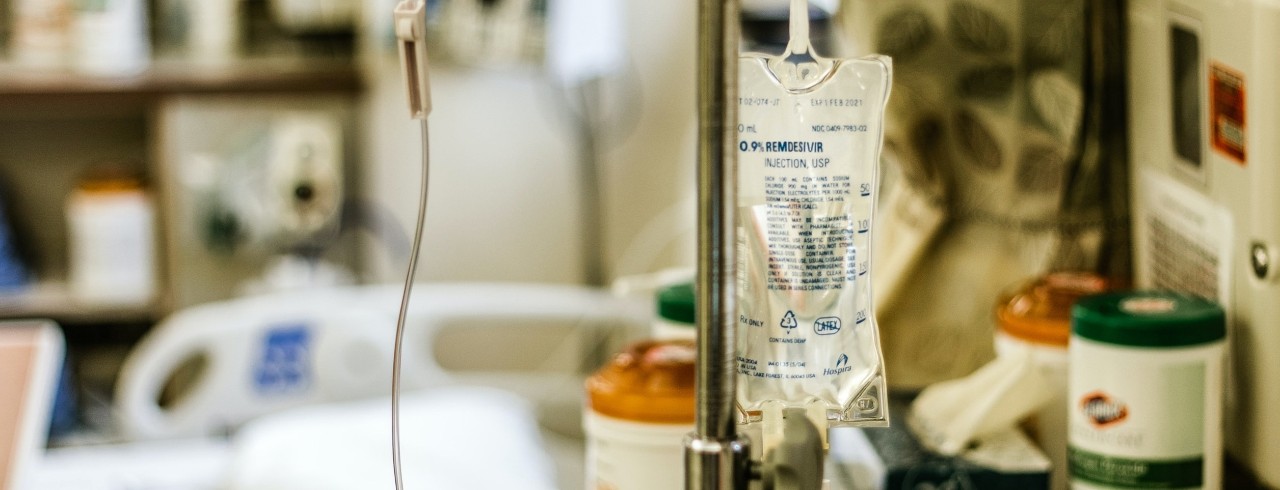
Local 12: UC researchers study how to personalize COVID-19 treatments
The University of Cincinnati's Bingfang Yan, PhD, DVM, has received a $2.5 million National Institutes of Health grant to study how currently approved COVID-19 therapeutics can work together to create more effective and safe treatments for patients.
“The question we are asking is, can we combine two of those, or even three of those, that can produce better favor or more effective treatment?" Yan, professor and associate dean for research and innovation at UC's James L. Winkle College of Pharmacy, told Local 12 News.
Yan said finding out more about how these drugs can be given in combination will not only help treat COVID, but may be useful in treating other viruses like influenza.
Yan also spoke about the research on 55KRC's Simply Medicine radio show and podcast. Listen to the Simply Medicine interview. (Note: Segment begins around 17:55 mark of episode.)
Featured photo at top of remdesivir in an IV bag. Photo/Dimitri Karastelev/Unsplash.
Related Stories
Local 12: UC researchers study how to personalize COVID-19 treatments
March 22, 2023
Local 12 highlighted the University of Cincinnati's Bingfang Yan, who recently received a a $2.5 million National Institutes of Health grant to study how COVID-19 therapeutics can work together to create more effective and safe treatments for patients.
MSN: Researchers study how immunotherapy affects COVID-19 outcomes
November 7, 2022
MSN India highlighted recent research led by the University of Cincinnati's Trisha Wise-Draper about how immunotherapy and immunosuppression affects COVID-19 severity.
What does it mean to be immunocompromised?
October 14, 2024
A growing number of American adults have weakened immune systems, which can leave them vulnerable to severe illnesses, according to recent reporting in The New York Times. Carl Fichtenbaum, MD, an infectious diseases professor in the Department of Internal Medicine at the University of Cincinnati College of Medicine weighed in on why certain chronic conditions can leave people immunocompromised.
